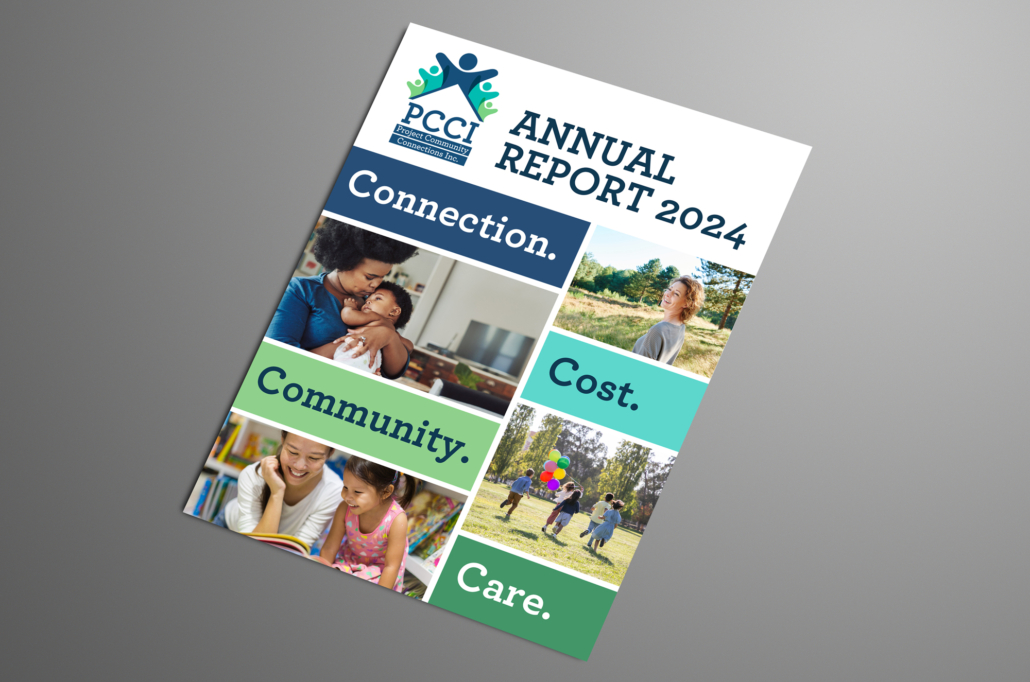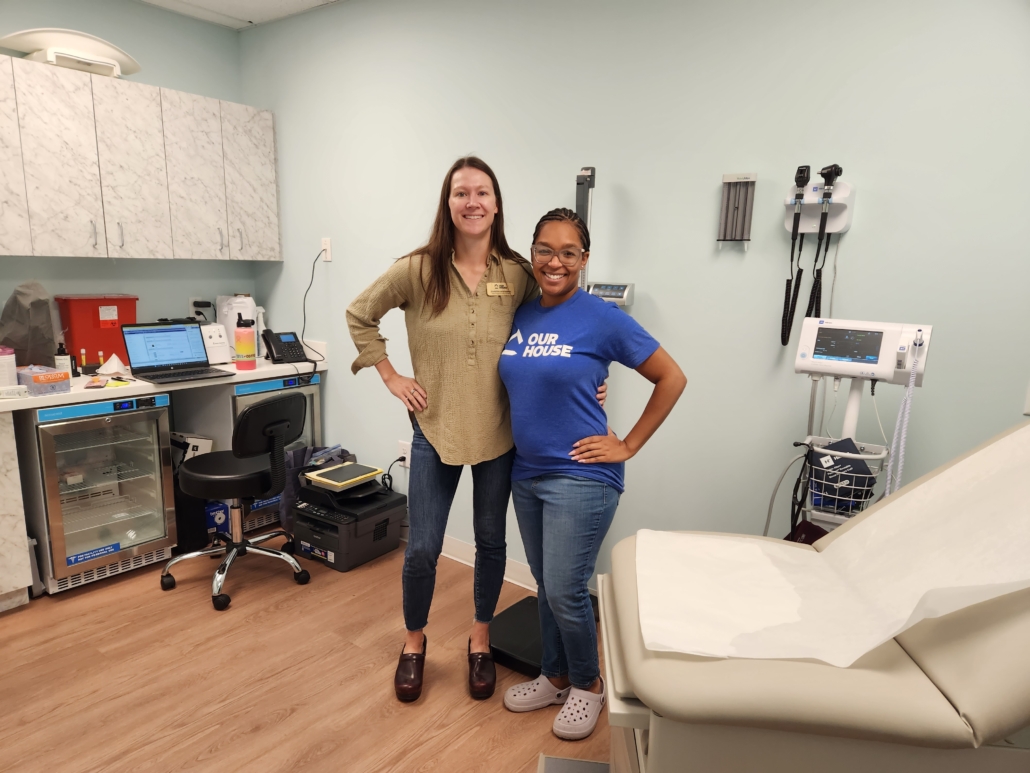2024 PCCI Annual Report
PCCI accomplished a great deal in 2024, not the least of which was the opening of Thrive Sweet Auburn. Join us in celebrating this tremendous year – read our 2024 Annual Report now.

PCCI accomplished a great deal in 2024, not the least of which was the opening of Thrive Sweet Auburn. Join us in celebrating this tremendous year – read our 2024 Annual Report now.

Washington, D.C., June 28, 2024 — The National Alliance to End Homelessness today condemned the Supreme Court’s ruling in the case of City of Grants Pass, Oregon v. Johnson. Under the ruling, localities will be able to arrest, ticket, and fine people for sleeping outdoors on public property, even if leaders have failed to produce enough affordable housing or shelter for everyone in the community who needs it.
Alliance leaders expressed extreme disappointment at the ruling, noting that it will do nothing to address the primary cause of homelessness in the United States: a severe, prolonged, nationwide shortage of affordable housing.
“This decision sets a dangerous precedent that will cause undue harm to people experiencing homelessness and give free reign to local officials who prefer pointless and expensive arrests and imprisonment, rather than real solutions,” said Ann Oliva, CEO of the National Alliance to End Homelessness. “At a time when elected officials need to be focused on long-term, sustainable solutions that are grounded in evidence – including funding the affordable housing and supportive services that their constituents need — this ruling allows leaders to shift the burden to law enforcement. This tactic has consistently failed to reduce homelessness in the past, and it will assuredly fail to reduce homelessness in the future.”
The ruling comes at a time when harmful and coercive homelessness policies are on the rise, despite opposition from frontline homeless service providers in communities all over the country.
The Alliance calls on federal, state and local leaders to reject the false promises of a law enforcement approach to homelessness, and instead leverage their unique influence to advocate for the resources their communities desperately need. These include: making major and sustained investments in our nation’s rental assistance programs and homelessness prevention; investing in the production and preservation of housing available to those with the lowest incomes; and increasing investments in the U.S. Department of Housing and Urban Development’s Homeless Assistance programs.
The Alliance also encourages members of the public to actively engage with lawmakers to push back against the increasing trend towards criminalization of homelessness, and to advocate for the housing and services that their communities need. Resources for advocating can be found at https://endhomelessness.org/actions/sign-alliance-advocacy-alerts/.
About the National Alliance to End Homelessness
The National Alliance to End Homelessness is a nonprofit, non-partisan, organization committed to preventing and ending homelessness in the United States. As a leading voice on the issue of homelessness, the Alliance analyzes policy and develops pragmatic, cost-effective policy solutions; works collaboratively with the public, private, and nonprofit sectors to build state and local capacity; and provides data and research to policymakers and elected officials in order to inform policy debates and educate the public and opinion leaders nationwide.
Our House provides health care and improves resilience
302 Decatur Street in Atlanta’s Sweet Auburn neighborhood is much more than an address to PCCI. It is where we have worked for more than two decades. We know the routines of the neighborhood, its sources of pride and pain, its history and its hope. That knowledge informed every decision about Thrive Sweet Auburn, the mixed-use housing development we constructed on the site of our former office building, including the selection of occupants for the ground floor office and retail suites. This story is part of a series highlighting those partners and businesses that are invested in making Thrive a community.
“It’s too good to be true.”
According to Tyreesha Hubbard, that’s a common response from people when they experience the high-quality, free healthcare services provided by Our House. Hubbard, an experienced pediatric nurse practitioner with a doctorate degree in nursing practice, serves as the chief clinical officer for Our House. Founded in 1988, the organization provides a pathway to stability and independence for families experiencing homelessness through access to health care, early childhood education, housing and employment. The organization has developed a suite of interrelated programs to address the root causes of homelessness.
At Thrive Sweet Auburn, Our House operates a medical clinic, one of three in their network, that provides essential and relevant support for low-income families and families experiencing homelessness, including people who live at Thrive. “This is a new model for us,” says Tyreesha. “Our other clinics are in homeless shelters.”
The clinic is purposefully designed and operated to help people feel welcome and safe. According to Tyreesha, “Dingy spaces, long wait times, limited services–that’s not what we do. We want our patients to know their health is worthy of our attention and care.”
Our House works to remove the barriers that can limit access to health care. For example, their clinics operate on a fast-paced, walk-in service model, and they do not require extensive personal documentation to receive support. According to Tyreesha, “The way we approach care is to invert the burden off of the community we are serving by being intentional about every detail. Is this a true requirement that someone needs to do or is it an unnecessary administrative barrier? We work to remove those barriers.”
Currently open one morning a week, the Thrive Sweet Auburn clinic offers physical exams, reproductive health support, blood pressure and additional screenings, and other forms of care to community members in need. “We are still getting to know the community to understand their specific needs,” says Tyneesha, “and we are building trust so that people know we are here to help.”
Preventative care is essential to improving health outcomes, and that’s why in addition to individual services, Our House hosts educational workshops on topics that are most relevant to the people they serve, such as breast cancer awareness and the causes and symptoms of cardiovascular disease in women.
Looking ahead, Tyreesha says the partners hope to operate the clinic more often and serve more people. The Our House team are also working to secure funding to broaden their impact through training, such as mental health first aid, to other social service providers. “If we can increase the competency of others who interact with clients, we collectively improve the outlook for each person, each family, we serve.”
Margaret Schuelke, co-executive director of PCCI, says that kind of high-leverage approach is key to the shared goal of ending homelessness in Atlanta. “Making our city a better place for everyone means restoring community–and that is done through partnership,” says Margaret. “PCCI and Our House both take a holistic approach, which increases the likelihood that people will be able to establish stable, healthy, fulfilling lives.”

302 Decatur St. SE, Ste.101
Atlanta, GA 30312
Hours of Operation: Monday – Friday, 8:30am – 4:30pm
There is no cost for services.
